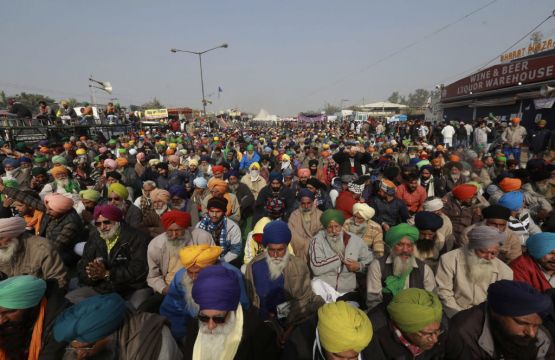India’s prime minister has said his government is willing to address the concerns of tens of thousands of farmers.
The demonstrators have blocked key highways in a protest against new agricultural reform laws but their demand the legislation be repealed has been rejected.
Prime Minister Narendra Modi accused opposition parties of spreading fears that three laws approved by Parliament in September will drive down crop prices and lead to farmers’ exploitation by corporations.

“If anyone has any concerns, then with our heads bowed, our hands folded, with humility, we are willing to allay their fears by discussing contentious issues,” Mr Modi said in a speech to a group of farmers supporting the legislation.
The protesting farmers have blockaded highways connecting New Delhi to northern India for three weeks, obstructing transport and dealing a blow to manufacturing and businesses in the north.
Protest leaders have rejected the government’s offer to amend some contentious provisions of the laws.
Farmers fear the government will stop buying grain at minimum guaranteed prices and corporations will then push prices down.
Mr Modi’s government has said it is willing to pledge guaranteed prices will continue.
The protesting farmers say the laws will lead to the cartelisation and commercialisation of agriculture and make them vulnerable to corporate greed.
Mr Modi said the laws will protect farmers interests.
He did not comment on a proposal by the Supreme Court to delay their implementation to facilitate a resumption of dialogue with the farmers, who have been camping on highways on the outskirts of New Delhi since November 27.
The court has also offered to set up a panel to mediate between the two sides after five rounds of talks failed to end the impasse.
“These laws were not brought in overnight,” Mr Modi said.
“In the past 22 years, every government, state has discussed these in detail.
“Farmer groups, agricultural experts, economists, scientists and progressive farmers have called for reforms.
“Political parties opposing these laws today promised these reforms in their election manifestos in the past.”
Nearly 60% of the Indian population depends on agriculture for their livelihoods.
The government says the reforms will enable farmers to market their produce and boost production through private investment.







